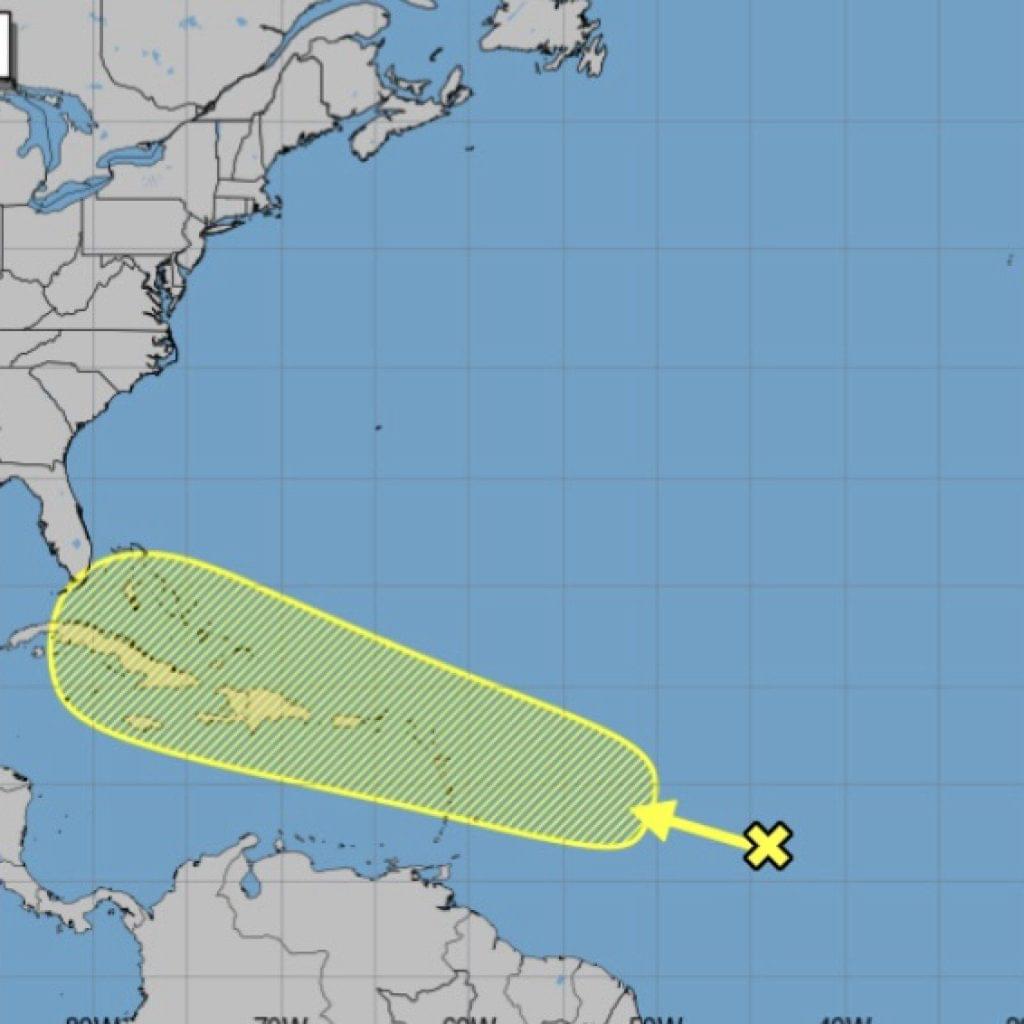
We’ve been fortunate so far to have avoided any severe storm activity, but today’s forecast image from the National Hurricane Center shows potential development for a storm.
While we are not meteorologists, we can help you with a list of things to have and know for hurricane season:
Before the storm approaches:
Check the propane level in your grills. Switch out the tanks if they need replenishment. You may need your barbecue to cook on if the power is out for an extended period of time. This is an item that disappears quickly when a storm is coming.
Water supplies include a gallon of water per person per day. This is water to drink and potentially cook with. Bottles or gallon containers will all work fine. if you’d like to can, you can literally can water if you have the jars and the room to store them. It’s a great way to save money.
Batteries and flashlight also disappear quickly in advance of a storm. A headlamp is extremely helpful when the lights go out.
Oil lamps can light up a room as well as a flashlight. That lamp on your shelf may be used for decoration, but it can come in very handy. Make sure you have wicks and lamp oil.
Take a look around your yard. Loose items should be picked up and put up long before the storm approaches. Those items can become missiles if the wind is very strong, or at the very least will blow around and make a mess. It’s less to worry about if you can take care of it now.
Test your generators. And if you don’t have one, and want one, buy it now. If a storm is forecasted to impact our area, your choices will become limited if you can even find one. Generators should be tested at least once a year. Make sure you have gas cans and get your fuel in advance. You can store it for the season and have it if you need it. If you end up not using it, you can always pour it into your gas tank. Double check the kind of fuel you use, as generators can take gasoline, diesel, or propane, depending on the model.
Keep your gutters clear. Summer rain and winds tend to blow leaves another matter into the gutter system and cause clogs over time. Clearing them now because less of a buildup if we get a storm over the next several weeks.
When a storm is forecasted to impact:
Check your food supply. It’s ideal to have at least a 72 hour supply of food available. Non-perishables are best, such as bread, peanut butter and jelly, pasta and sauce, among other things, as they do not require refrigeration. Hurricanes are likely to cause power outages, and possibly for several days, so be prepared to have canned and jarred foods available.
Don’t forget about your pets. Have at least a week or two of food on hand as store availability can be iffy.
Secure your patio furniture, potted plants, or other things that will blow around in a storm. If you choose to shutter or put plywood over your windows, this is the time, not once the storm begins.
Charge all of your devices. Consider adding a power bank to your emergency supply list and have it charged. Internet service will be poor, if you have any at all, and once the power is out, you’ll want to be able to make calls and check on the storm. At that point, using cellular data can get you back online while you wait for power.
Have an emergency plan. If you live in a flood zone or low lying area, or near tall trees, know that flooding and tornadoes are possibilities. Know where you’ll go if you have to evacuate. Don’t wait until it’s too late.
During the storm:
When the rain starts hammering down, and the wind is howling, it’s more than time to just hunker down and wait. Stay away from windows and glass, as flying debris outside can cause damage.
Fill the bathtub with water; this can be used for flushing toilets if needed. Homes that have a well may lose water until they are able to reestablish power.
If there is a threat of a tornado, the household should head for an interior room of the home that does not have any windows. This will be the strongest room to withstand significant wind.
When it’s over:
First, know that the storm is completely over. The eye of a hurricane is extremely calm and has been confused by people for the end of the storm.
Don’t get in your car and head out to survey the damage in the neighborhood. Powerlines can be down, and many dangers will be sitting in roadways. Keep the roads clear for first responders who will head out as soon it is safe to do so.
Help your neighbors. Check on the lady next-door, or the couple that lives behind you, and see if they’re OK.
There are many other things one can do to prepare, but this is a starting point towards securing your home and family.
Together, the community can do a lot to support families in the aftermath of hurricane. Being prepared in advance goes a long way towards recovery.
To stay up-to-date with hurricane forecasts, please visit nhc.noaa.gov.


